UK braces for recession but wants to ‘keep calm’ while EU prepares to retaliate against Trump’s ‘disorder’
The UK is looking to shore up impacted businesses but is ‘staying calm’ while the European Union considers how to retaliate against Donald Trump’s tariffs.
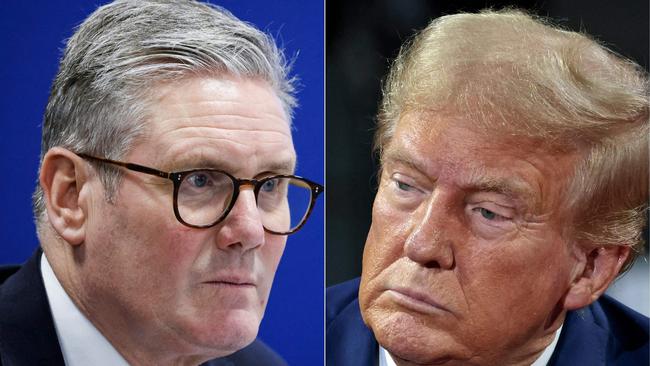
A teetering British economy looks likely to fall into recession, analysts say, after US President Donald Trump imposed across-the-board 10 per cent tariffs on the United Kingdom.
But Britain’s Keir Starmer government said it would not yet retaliate against the US, its major trading partner, especially as the two countries are in the midst of bilateral trading talks.
Number 10 was also mindful that the UK suffered less than its main trading competitor (and partner), the European Union, which was hit with 20 per cent tariffs.
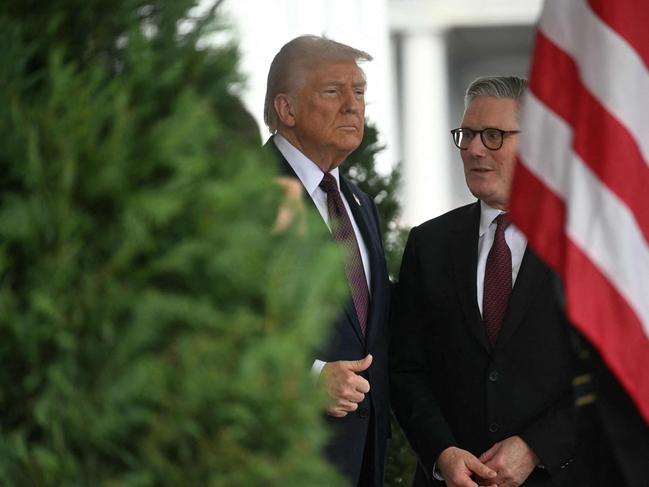
Across the Channel, the EU has flagged possible retaliatory measures against the US technology and media giants as well as regulatory red tape against US financial systems.
EU states will meet on Friday to formulate a response. Economists have cut EU’s forecast GDP growth from 1.4 per cent to 1 per cent for 2026.
European Commission president Ursula von der Leyen said on Thursday: “There seems to be no order in the disorder. No clear path through the complexity and chaos that is being created, as all US trading partners will be hit.’’
She warned the EU would not absorb global overcut capacity nor accept dumping of goods in the EU market as other countries are shut out of the US market.
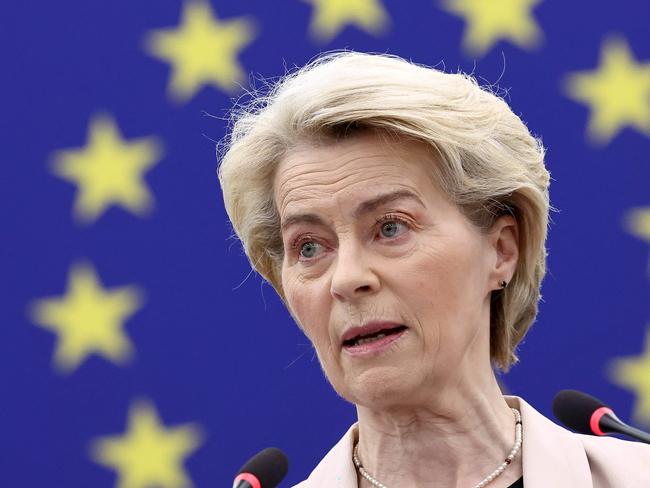
“We will also be watching closely what indirect effects these tariffs could have,’’ she said, warning that millions of citizens would face higher grocery bills with increased costs of medication and transportation and as a result inflation would rise.
“The costs of doing business with the United States will drastically increase,” she said.
Trump escalates trade war with sweeping global tariffs
Mr Trump said the EU had been “pathetic” in applying “rip-off” tariffs against the US.
Conservative British politicians were hailing the “Brexit dividend” where the UK had divorced itself from Europe for saving the country from the higher tariff level which would have cost the country tens of thousands of jobs.
However the different US tariff rates in Northern Ireland – 10 per cent – and the 20 per cent in the Republic of Ireland will cause tensions on the border and put political pressure on the Windsor Framework, which allows largely frictionless movement of goods across the border.
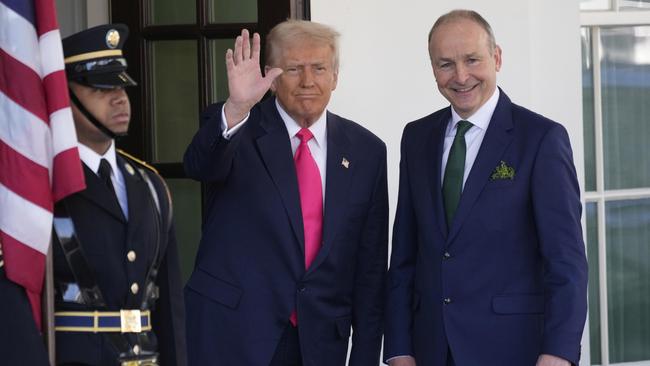
Ireland Prime Minister Michael Martin said he deeply resented the US tariffs, saying “there is no justification for this.”
He said: “I strongly believe that tariffs benefit no one. My priority, and that of the government, is to protect Irish jobs and the Irish economy.”
Other European countries expressed dismay, including Mr Trump’s closest European ally, Prime Minister Giorgia Meloni in Italy.
She said: “The introduction by the US of tariffs towards the EU is a measure that I consider wrong and that does not suit either party.”
The UK is already on an economic knife-edge after the Labour government recently raised $A80bn in taxes, as well as increasing major costs to businesses with national insurance and minimum wage rises.
Further tax rises have not been ruled out by Chancellor Rachel Reeves with households already reeling from exorbitant energy costs that has wiped out discretionary spending.
Business leaders in Britain have called on the government to immediately support local businesses and mitigate the US impact, especially on the steel and car industries and pharmaceuticals.
Britain had a £71.4bn ($149bn) surplus in trade in goods and services with the US in 2023, according to the Office for National Statistics.
But the UK government is urging a “calm” approach.
Business Secretary Jonathan Reynolds said: “The US is our closest ally, so our approach is to remain calm and committed to doing this (current trade) deal.
“We have a range of tools at our disposal and we will not hesitate to act. We will continue to engage with UK businesses including on their assessment of the impact of any further steps we take.”
The National Institute of Economic and Social Research (NIESR) said UK growth would now fall to zero next year because of the blanket 10 per cent tariffs.
NIESR economist Ahmet Kaya said Britain “could risk entering a recession either this year or next”.
Other experts say the UK faces a stagnating economy and that the erosion of trust in the US as a reliable partner would have serious and long-term consequences.
Rain Newton-Smith, chief of the Confederation of British Industry, said the tariffs were “deeply troubling”.
She said: “Business has been clear: there are no winners in a trade war. Today’s announcements are deeply troubling for businesses and will have significant ramifications around the world.
Mike Hawes, the chief executive of The Society of Motor Manufacturers and Traders, said the announcements were “deeply disappointing”.
“While we hope a deal between the UK and US can still be negotiated, this is yet another challenge to a sector already facing multiple headwinds,’’ he said.
“These tariff costs cannot be absorbed by manufacturers, thus hitting US consumers who may face additional costs and a reduced choice of iconic British brands, while UK producers may have to review output in the face of constrained demand.’’





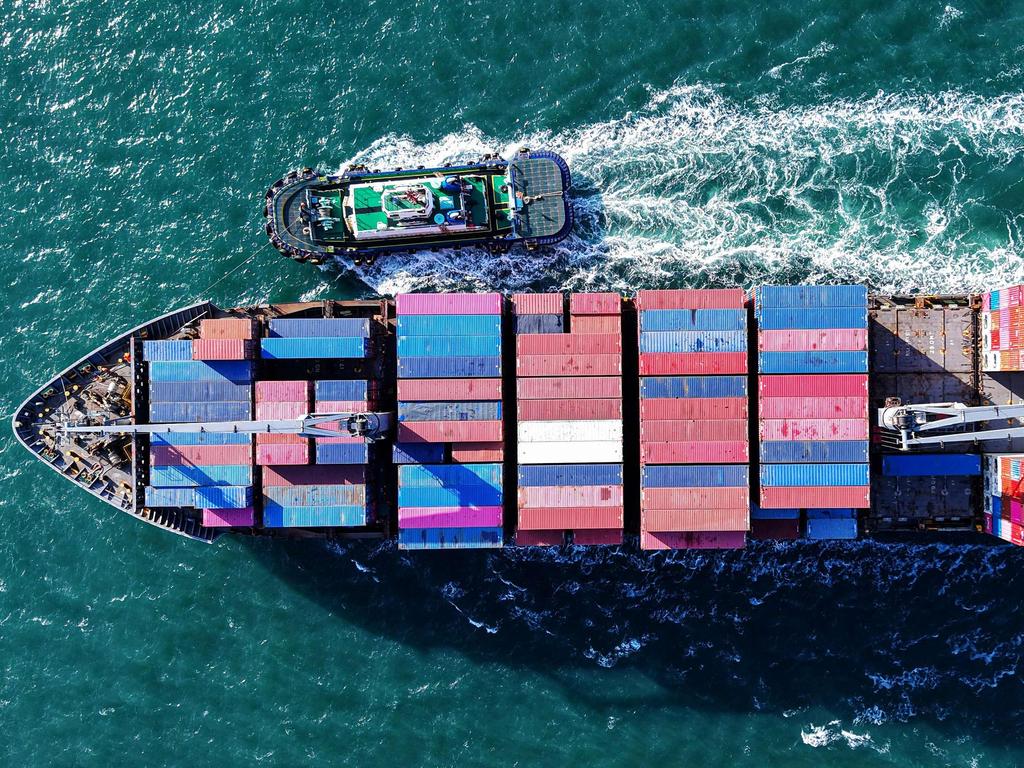


To join the conversation, please log in. Don't have an account? Register
Join the conversation, you are commenting as Logout